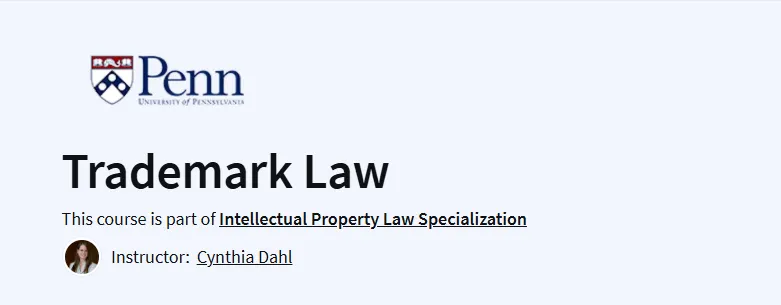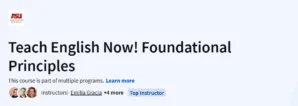What you will learn Trademark Law Course
- Fundamentals of trademark protection
- Trademark registration processes
- Infringement analysis and enforcement
- International trademark systems
- Brand management strategies
- Fair use and parody defenses
- Current issues in digital trademark law
Program Overview
Trademark Fundamentals
⏱️ 2 weeks
- Covers distinctiveness requirements, classification systems, and acquisition of rights. Includes USPTO filing simulation.
Registration & Maintenance
⏱️ 2 weeks
- Examines application procedures, opposition proceedings, and renewal requirements.
- Features specimen analysis exercises.
Enforcement & Litigation
⏱️ 2 weeks
- Addresses likelihood of confusion tests, dilution claims, and remedies.
- Includes famous case studies (Louboutin, Apple).
Special Topics
⏱️ 2 weeks
- Focuses on domain name disputes, social media issues, and international treaties (Madrid Protocol).
Get certificate
Job Outlook
- Professional value: Essential for IP attorneys
- Salary potential: Trademark attorneys earn 90K200K
- Industry demand: Growing need for brand protection
- Certification benefit: Counts toward CLE credits
Specification: Trademark Law
|
FAQs
The course explores:
- What qualifies as a trademark and its scope
- Selecting and strengthening effective marks
- Filing and prosecuting federal trademark applications
- Maintaining, enforcing trademarks, and addressing infringement
CourseraShiksha
You’ll develop skills in brand protection, registration strategy, legal risk management, and compliance.
- Designed to take around 2 weeks at 10 hours/week and is fully self-paced.
- Includes four modules totaling approximately 18–19 hours, depending on learner pace.
- The course features 19 assignments, including quizzes and discussion prompts, to reinforce learning.
- Each module includes a mix of video lectures, readings, and interactive components to support comprehension.
- Offered by the University of Pennsylvania, it carries academic credibility and relevance for roles in brand management, IP law, marketing, and business strategy.
- While foundational and valuable for legal literacy, real-world application often requires complementary experience or internships in IP environments (e.g., IP clinics, law firms).





